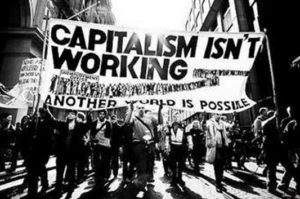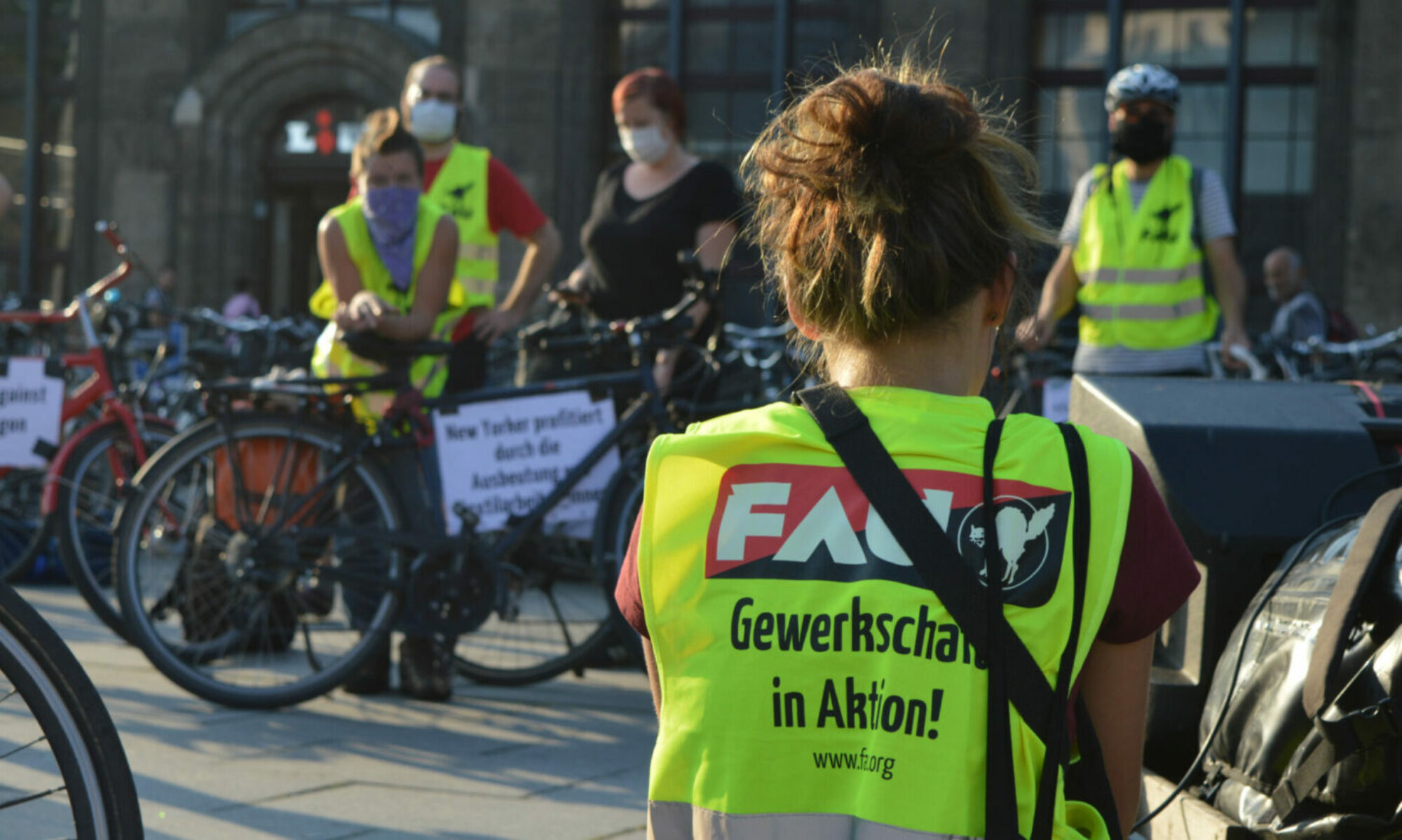 For one year now, thousands of children and young people in many countries have been boycotting the school every Friday in protest against the destruction of the livelihood of future generations. For September 20, 2019, Fridays for Future and various associations are now also calling for a climate strike, which the DGB (German Trade Union Confederation, hirarchical) itself is supporting. But with one significant restriction: Since political strikes are forbidden in Germany, the DGB explicitly excludes a call for strikes. Instead, it calls on workers who “show solidarity with Fridays for Future and take part in demonstrations” to “respect existing labour law and take time off for this period”. The “climate strike” appeal itself also calls for “taking time off” to ‘strike’, “reducing overtime”, “requesting unpaid special leave” or asking employers to support the ‘strike’, as it would be good for the company’s image to “declare their support for the climate strike”. In addition, ‘strikers’ are supposed to promise ‘to prepare for tasks that cannot be postponed and to make up for missed work soon’ and ‘to be more motivated at work again on Monday’.
For one year now, thousands of children and young people in many countries have been boycotting the school every Friday in protest against the destruction of the livelihood of future generations. For September 20, 2019, Fridays for Future and various associations are now also calling for a climate strike, which the DGB (German Trade Union Confederation, hirarchical) itself is supporting. But with one significant restriction: Since political strikes are forbidden in Germany, the DGB explicitly excludes a call for strikes. Instead, it calls on workers who “show solidarity with Fridays for Future and take part in demonstrations” to “respect existing labour law and take time off for this period”. The “climate strike” appeal itself also calls for “taking time off” to ‘strike’, “reducing overtime”, “requesting unpaid special leave” or asking employers to support the ‘strike’, as it would be good for the company’s image to “declare their support for the climate strike”. In addition, ‘strikers’ are supposed to promise ‘to prepare for tasks that cannot be postponed and to make up for missed work soon’ and ‘to be more motivated at work again on Monday’.
We think it makes sense and is important to demonstrate against an environmentally destructive economy and a policy that bends inactively to economic growth imperatives or continues to encourage socially and ecologically destructive growth in the name of preserving jobs and economic interests. As a form of political struggle, we also consider strike action, in other words the demonstrative withdrawal of manpower and working hours, to be an important and appropriate means. We therefore join in the protests and call on the members of our syndicate to take part in the climate strike. We will involve ourselves and call on other city syndicates and sections of the Free Workers Union (FAU) to do the same.
At the same time, however, the demands linked to the call for a climate strike and the ideas as to how they might be implemented seem inconsistent and inconsequential. For whether it is possible to halt climate change and find a socially and ecologically responsible form of economic activity and life without overcoming the fundamental forms and logics of the current capitalist economic system seems and at least is questionable. Another problem seems to be that the call shows considerable vagueness about what a strike is and what distinguishes this form of struggle from other forms of protest. Therefore, we would like to link our fundamental solidarity with some critical suggestions and remarks.
People who want to deal with our positions and arguments can read more here.
What does climate change have to do with capitalism and what is a strike at all?
This part will be translated soon.

